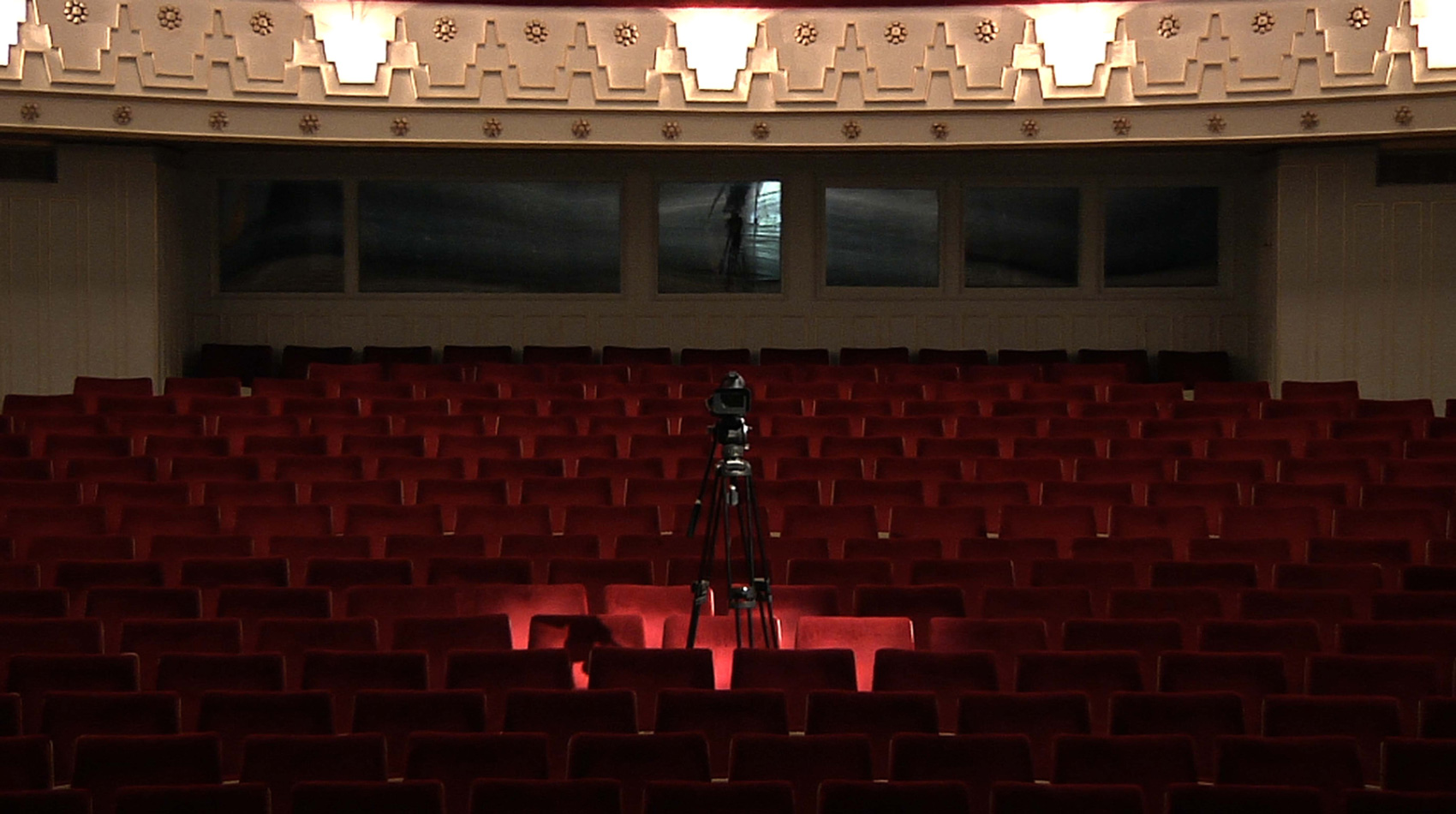| All Restrictions End | Reza Haeri | 2009 | 30:00 min. | |
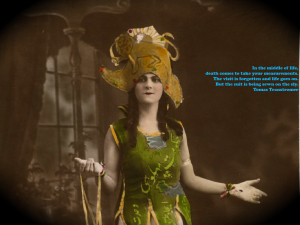 |
All Restrictions End is an experimental documentary dealing with contemporary Iranian history by focusing on the evolution of clothes and fashion. The structure of the film is a free form of collage using archival footage from Iranian cinema, painting, Revolutionary graphics,and works provided by various artists . |
| State-theatre #2 Tehran | Constanze Fischbeck & Daniel Kötter | 2011 | 24:00 min. | |
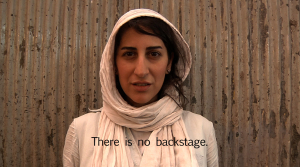 |
The word 'theatre' (theatron in greek) refers first and foremost to the place and architecture of a performance, rather than to what is being performed. Even after centuries, a theatre’s architecture represents the visual order from which it emerged: the possibilities for artistic production are historically conditioned. The geometrical space of architecture is pitted against the anthropological space of its use. Daniel Kötter, born 1975, is a director and video artist whose work oscillates deliberately between different media and institutional contexts, combining techniques of structuralist film with documentary elements and experimental music theater. It was shown in numerous galleries, video festivals, concert halls and theatres all over Europe, in New York, Mexico, Tehran and Lagos. Between 2008 and 2011, he developed the video- and opera-performance trilogy Arbeit und Freizeit. His music theatre performances in collaboration with composer Hannes Seidl are shown at international festivals such as the Venice Biennale, Musica d’hoy Madrid and others. Kötter's series of installations, films, and discursive work on urban and socio-political conditions of performativity has been under development since mid-2009 under the title state-theatre: Lagos/Teheran/Berlin/Detroit/Beirut/Mönchengladbach (with Constanze Fischbeck). For galleries and dance performances, he developed multi-channel live video delay installations. His award-winning short-Film Film für übers Sofa (with Hannes Seidl) was shown at festivals worldwide. Daniel Kötter has been living and working in Berlin since 1996. Constanze Fischbeck was born in 1968 in Berlin. She works as stage designer and video artist. Her artwork is based on the space and present of specific locations. In her films she investigates the interference of documentary and staged moments in the urban context. Her work was presented at various festivals, art institutes and theatres. 2008: seven-channel-spatial-video-installation "Benzin – a reconstruction of exchange systems in Lagos”, with Daniel Kötter, on behalf of the Goethe-Institute Lagos and the House of World Cultures, Berlin since 2009 and on going: "state-theatre", six experimental films, performances, exhibitions and internet presentation about the conditions of performativity in Lagos, Teheran, Berlin, Detroit, Beirut and Mönchengladbach; with Daniel Kötter; various presentations for instance within Afropolis (Rautenstrauch-Joest-Museum Köln and Iwalewa-House Bayreuth), the artist house Mousonturm Frankfurt and film premier on 10th december 2011 at the Academy of Arts Berlin, emaf-Festival Osnabrück 2012, rencontre international Berlin, Paris, Madrid 2012 2012 “Making of History”, Film-Installation with a scenic commentary, Maxim Gorki Theater Berlin, in collaboration with Daniel Kötter and Hans-Werner Kroesinger. www.constanzefischbeck.com |
| Someone Else's Project | Shirin Mozaffari | 2012 | 04:39 min. | |
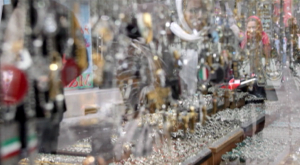 |
Someone Else’s Project gives an unmediated insider look to the everyday lives of residents of Tehran, focusing on a correspondence between a U.S. based artist, and a Tehran based videographer, who takes on the risk of shooting illegally on the streets. The videographer recounts her interactions with civilians and guards, where strangers offer her voluntary and enthusiastic support to accomplish an illegal task. While reflecting on the unexpectedly familiar nature of everyday life in Tehran, Someone Else’s Project sheds light on Tehrani civilian’s resistant attitude towards civil obedience and the isolation of a society that is desperate to participate. Shirin Mozaffari is a media artist, born and raised in Tehran, Iran. She holds a Master of Fine Arts from The School of The Art Institute of Chicago. Mozaffari's work ranges from animation, video installation, documentary and ethnography films. Her works has screened at Palais de Tokyo in Paris, The Gene Siskel Film Center in Chicago, Queelnsland Gallery of Modern Art in Australia as well as festivals in Canada, Tehran, Norway, Poland, Sweden, San Francisco, Switzerland and New York. Her short film, Namesake was awarded for best Art Direction at Chicago Short Film Festival. More at shirinmozaffari.com. |
| Excursions in the Dark | Kaya Behkalam | 2011 | 19:30 min. | |
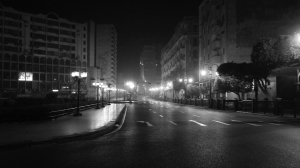 |
Cairo, February 2011. The dictator Hosni Mubarak has been deposed and calm has returned to the streets. But the dark alleyways and city squares seem strangely empty. The nightly curfew has turned the place of revolutionary action into a space outside of chronological time, a stage waiting to be filled, in a “standby” status, after the curtain fell and before it rises again. What is waiting to be filled with? Fragments of conversations with women and men recalling their dreams speak of unconscious fears and formless images, contrasted by a motionless camera looking at the city as a manifestation of the desires and projections of previous epochs. Excursions in the Dark traces -°©‐ in the words of Walter Benjamin – the “moment that the historian takes upon himself the task of dream interpretation”, the vanishing point connecting the city’s architecture, collective dreamscapes and political agency. Born 1978 in Berlin, lecturer at the Film and Arts Department of the American University Cairo. He is a PhD Candidate at the Bauhaus University Weimar, after studying Media Art at the UdK Berlin. Together with Azin Feizabadi he founded the artist group RELOADING IMAGES, which works on collective projects of artistic research. His current long term project SEEING HISTORY explores archival practices and changing medialities of the historical in the context of post-‐ revolutionary Cairo. |
